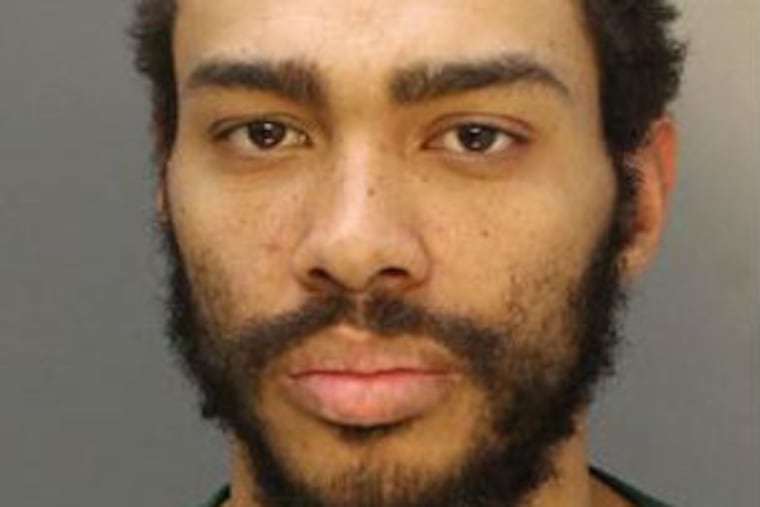Justice Dougherty: Man who attacked me needs treatment
In his first public comments after being attacked near Philadelphia City Hall nearly three weeks ago, state Supreme Court Justice Kevin Dougherty said Wednesday that he wants the assailant to get proper mental-health treatment.

In his first public comments after being attacked near Philadelphia City Hall nearly three weeks ago, state Supreme Court Justice Kevin Dougherty said Wednesday that he wants the assailant to get proper mental-health treatment.
James Paulk, 26, was charged with two counts each of simple assault and recklessly endangering another person in relation to two seemingly random attacks on March 18, including the one on Dougherty.
Dougherty, 53, said the "main concern in this matter is not about prosecution, but about the proper treatment of the vulnerable and disabled."
In the emailed statement, a court spokesman added: "Untreated mental health has always been an issue of paramount importance to the justice, and he believes the attention in this case should be directed at securing the appropriate care for Mr. Paulk."
Paulk, of East Germantown, has been found incompetent to face a preliminary hearing and was ordered last week by Philadelphia Municipal Judge Bradley Moss to get mental-health treatment.
Moss ordered Paulk to be committed to Norristown State Hospital or to the city jail system's mental-health wing in the Detention Center facility in Northeast Philadelphia. The judge set May 27 for another status hearing of Paulk's mental health.
As of Wednesday, Paulk was still at the Curran-Fromhold Correctional Facility in Northeast Philadelphia and had not yet been transferred to the Detention Center or to Norristown, prison spokeswoman Shawn Hawes said.
Bruce Herdman, chief of medical operations for the Philadelphia Prison System, said the wait for an inmate to go to Norristown is about six to nine months long.
Norristown, which has "very limited number of beds" is "more of a therapeutic environment, and less of a correctional environment," said Herdman, noting that supporters of inmates who need treatment would prefer that they go to Norristown rather than be treated in the Detention Center jail.
About 5 p.m. March 18, police said, Paulk punched a 43-year-old man on a Broad Street Line subway train. The victim, whom police did not identify, said he had noticed Paulk standing at the opposite doors of the train talking to himself.
As the train approached the City Hall station, Paulk walked up and punched the man's neck, then ran off the train, police said.
Dougherty, in the statement, said that about 6 p.m. that day, he was leaving his office at 1500 Market Street and walking toward City Hall with his wife and a member of his staff when Paulk approached him.
Police have said that Paulk blocked the path of Dougherty's group and asked for money. When Dougherty's group refused him, Paulk "swung his arm" and hit Dougherty on the right side of his face, police said. Paulk then allegedly fled into the subway.
Shortly after the incident, SEPTA police found Paulk at the Girard Avenue station. Dougherty and the other victim were brought there and identified Paulk as their attacker, according to city police.
Dougherty, in the statement, said that after the altercation, he was admitted to Thomas Jefferson University Hospital and examined for concussion-like symptoms. He was released shortly after passing various tests, he said.
Paulk's mother, Delores Paulk, 65, in an interview with the Inquirer the day after the alleged attacks, said her son has struggled with schizophrenia for about six years.
She said her son did not have a history of violence and she didn't know what happened to cause the outbursts.
She said medications her son has tried for his mental-health issues "make him feel like a zombie and take his soul," so he has been living on the streets.
Court records show that Paulk has previously been convicted on summary or misdemeanor charges of driving under the influence, simple assault, public drunkenness, theft of services and disorderly conduct.
Dougherty was sworn in as a state Supreme Court justice in January. Previously, he served as a Philadelphia Common Pleas Court judge from 2001 to 2015, during which he was the administrative judge of Family Court from 2005 to 2014. He left the Family Court post in 2014 when he was appointed administrative judge of the Trial Division of Philadelphia Common Pleas Court.
215-854-2592
@julieshawphilly